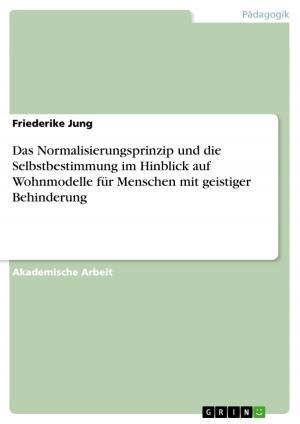The influence of the EU Neutrals on European Security and Defence Policy
Nonfiction, Social & Cultural Studies, Political Science| Author: | Elisabeth Heid | ISBN: | 9783638483582 |
| Publisher: | GRIN Verlag | Publication: | March 27, 2006 |
| Imprint: | GRIN Verlag | Language: | English |
| Author: | Elisabeth Heid |
| ISBN: | 9783638483582 |
| Publisher: | GRIN Verlag |
| Publication: | March 27, 2006 |
| Imprint: | GRIN Verlag |
| Language: | English |
Seminar paper from the year 2005 in the subject Politics - International Politics - Topic: European Union, grade: 1,0, Free University of Berlin (Otto-Suhr-Institut), course: The Evolution of European Security Institutions, 82 entries in the bibliography, language: English, abstract: In the space of a few years, the EU has made more progress on developing its European Security and Defence Policy (ESDP) than in the previous forty years of European integration. This has occurred despite the fact that four EU member states that are historically 'neutral', i.e. they are not members of NATO and are merely observers (not members) of WEU. Namely, these states are Austria, Finland, Ireland and Sweden (henceforth: EU neutrals). Many of the ESDP measures (unanimously!) adopted by the EU seem incompatible with such neutrality policies. How, then, has it been possible for ESDP to evolve so significantly since 1997 in light of the fact that the Union must accommodate the concerns of the EU neutrals? In this paper, I argue that ESDP has been able to develop so rapidly because it has been crafted so as to allow for the participation of Austria, Finland, Ireland and Sweden without jeopardizing their neutrality policies. Specifically, this means that ESDP has adopted solely functions that reflect the preferences of EU neutral states - a preference that ESDP encompass matters concerning 'security and defence cooperation', whilst excluding a 'common defence'. Thus my independent variable is the preferences of neutral states for ESDP. My dependent variable are the institutional functions that ESDP adopted between 1997 and 2004, as reflected in actual policy agreed upon by the European Council. I limit my investigation to a case study of the Irish government's preferences for ESDP functions in relation to several specific instances of ESDP evolution (European Council meetings and Intergovernmental Conferences). My paper proceeds as follows: The first section specifies my explanatory factor - the preferences of neutral states for ESDP - and draws on rationalist institutionalist theory to lay out my hypothesis that ESDP will only encompass those functions the neutral states favour. The second section discusses the operationalisation of the independent and dependent variables and presents the data sources to be used. In the third section, I engage in the case study analysis of Irish influence on ESDP. The fourth section summarises the findings, discusses the strengths and shortcomings of my study and rationalist institutionalism's application to it.
Seminar paper from the year 2005 in the subject Politics - International Politics - Topic: European Union, grade: 1,0, Free University of Berlin (Otto-Suhr-Institut), course: The Evolution of European Security Institutions, 82 entries in the bibliography, language: English, abstract: In the space of a few years, the EU has made more progress on developing its European Security and Defence Policy (ESDP) than in the previous forty years of European integration. This has occurred despite the fact that four EU member states that are historically 'neutral', i.e. they are not members of NATO and are merely observers (not members) of WEU. Namely, these states are Austria, Finland, Ireland and Sweden (henceforth: EU neutrals). Many of the ESDP measures (unanimously!) adopted by the EU seem incompatible with such neutrality policies. How, then, has it been possible for ESDP to evolve so significantly since 1997 in light of the fact that the Union must accommodate the concerns of the EU neutrals? In this paper, I argue that ESDP has been able to develop so rapidly because it has been crafted so as to allow for the participation of Austria, Finland, Ireland and Sweden without jeopardizing their neutrality policies. Specifically, this means that ESDP has adopted solely functions that reflect the preferences of EU neutral states - a preference that ESDP encompass matters concerning 'security and defence cooperation', whilst excluding a 'common defence'. Thus my independent variable is the preferences of neutral states for ESDP. My dependent variable are the institutional functions that ESDP adopted between 1997 and 2004, as reflected in actual policy agreed upon by the European Council. I limit my investigation to a case study of the Irish government's preferences for ESDP functions in relation to several specific instances of ESDP evolution (European Council meetings and Intergovernmental Conferences). My paper proceeds as follows: The first section specifies my explanatory factor - the preferences of neutral states for ESDP - and draws on rationalist institutionalist theory to lay out my hypothesis that ESDP will only encompass those functions the neutral states favour. The second section discusses the operationalisation of the independent and dependent variables and presents the data sources to be used. In the third section, I engage in the case study analysis of Irish influence on ESDP. The fourth section summarises the findings, discusses the strengths and shortcomings of my study and rationalist institutionalism's application to it.















